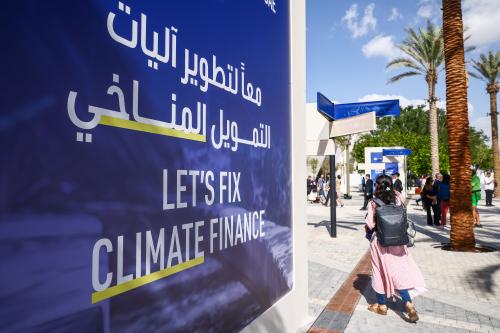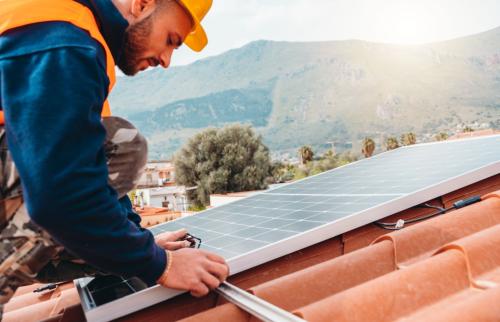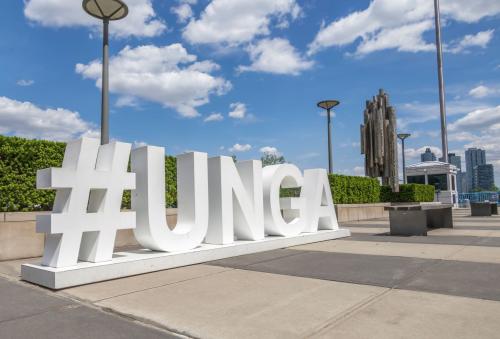Editor’s Note: On September 15, 2012, John Banks, a nonresident fellow with the Energy Security Initiative at Brookings, appeared on Nevada Public Radio to discuss the creation of a comprehensive national energy policy.
LUIS HERNANDEZ (HOST): Since the oil embargo of 1973, the U.S. has struggled to implement a sustainable and comprehensive national energy policy. That’s partly due to recent emerging trends such as how to combat climate change and the emergence of alternative energy options. So what does a comprehensive national energy policy even look like? Brookings fellow John Banks will discuss issues that have impacted state energy policy since the 1970s at a lecture tonight at [the University of Nevada, Las Vegas]. John Banks joins us in the studio. John, Welcome…great to have you!
JOHN BANKS: Pleasure to be here, thanks.
…
HERNANDEZ: John, I want to start with you. The summary for tonight’s lecture notes that the U.S. has struggled to implement a sustainable and comprehensive national energy policy, as I mentioned. This, of course, going back to the oil embargo of the 1970s. But briefly describe what a national energy policy, a good one, should look like.
BANKS: Well that’s a very good question and, as you indicated, the discussion tonight will look at some of the themes that have influenced that question since the 1970s. And I think one of the primary challenges (and this leads to what a policy should look like) is something that achieves a balance between achieving the various goals in energy policy. The first challenge since the 70s has been to try to address national security goals: in particular to reduce our vulnerability to supply disruptions, price fluctuations. This is particularly important in the transportation sectors since we’re so overwhelmingly dependent on oil. And the second is trying to achieve environmental goals: to protect the environment from adverse affects of energy use, in particular the use of fossil fuels. And then thirdly, economic goals: how do we work in objectives such as creating jobs, supporting industries, raising revenue, etc.? So energy policy has had these three components that have been very difficult to balance. How do you implement a policy that actually achieves and reconciles those three goals? And that has been a very difficult challenge to address over the years.
HERNANDEZ: And then I’m wondering what stands out for you as probably the most difficult of those challenges for lawmakers to actually put together a good policy?
BANKS: Well, I think one of the challenges in this respect—one of the major factors—is the short-term view of politicians. You know, you have right now a sluggish economy and I think economic goals are taking precedence. There is a priority to try to create jobs and stimulate the economy. And the lawmakers and politicians are looking at energy policy as a way to do that. And that’s fine and I think you can try to use energy policy to create jobs but it could be very short-term in its affect and in its outlook. What happens when the economy starts to rebound? Should we continue to use energy policy to achieve economic goals? So, I think one of the major issues here is the short-term versus the long-term picture. Some of our energy challenges are long-term and very comprehensive in nature. So they’re not something that is going to be resolved with a policy approach that’s two to three years in perspective.



Commentary
Debating Energy Policy
September 25, 2012